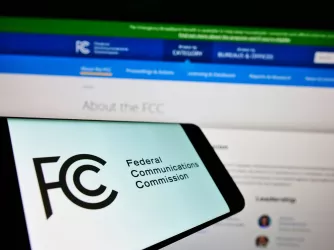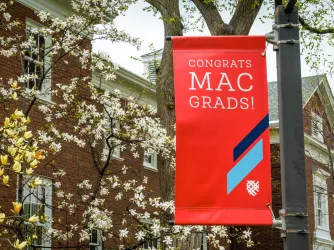Table of Contents
Historian Shouted Down at Cal State Northridge

Last week, historian and Baylor University professor George Gawrych was prevented from delivering a lecture at California State University, Northridge (CSUN) when students chanted repeatedly in protest until he left the room.
According to the student newspaper, The Sundial, Gawrych’s planned lecture was to focus on a book he had written about Turkish army officer Mustafa Kemal Atatürk. As The Sundial reported, “Many Armenians feel that Gawrych’s book ‘The Young Atatürk: From Ottoman Soldier to Statesman of Turkey’ praises a leader who played a role in the Armenian genocide.” The protesting students comprised members of Armenian Youth Federation and the CSUN Armenian Students Association. A video of the incident was posted on AYF’s Facebook page.
As we’ve written many times before, shouting down speakers with whom you disagree is not appropriate conduct in a setting that is meant to be the “marketplace of ideas.” To do so deprives others of the chance to hear from the speaker and to challenge his ideas more directly—and perhaps more effectively—by asking questions for the whole audience to hear. The marketplace of ideas is best served when members of the campus community add their voices to an ongoing conversation, not when some community members silence others.
Unfortunately, both Gawrych and students who may have wanted to hear about his book or engage in a public conversation with him were denied the opportunity to participate in the event as planned.
University of California, Los Angeles law professor and Washington Post contributor Eugene Volokh covered the story earlier this morning and relayed the university’s response. CSUN expressed pride in the school’s “strong ties with the Armenian community” but also noted, “[I]t is important for our university to be open to a wide range of visiting speakers and scholars, even those whose ideas we may disagree with.” FIRE is glad to see this statement from the university.
CSUN’s response also characterized the lecture as being “cancelled in the interest of public safety” and said that, with respect to the protesting students, “information about student conduct is still being gathered.” The university may, consistent with the First Amendment, punish students who effectively force the cancellation of events through disruption, and it should strongly emphasize to students that the best solution to speech with which one disagrees is more speech, not censorship.
In this morning’s article, Volokh remarks on the ramifications of students’ increasing intolerance to disfavored views on campus. Quoting a statement from the objecting students, he writes:
So let’s see: The university is supposed to exclude historians who want to speak positively about important historical leaders, based on students’ ideas about which views are not “acceptable or appropriate.” Indeed, the university is not supposed to “allow[]” such a talk “to take place on campus.” That’s not just true of talks that themselves disagree with the position that the Ottoman Empire engaged in genocide; as best I can tell, there was no indication that this was the purpose of Gawrych’s talk. It’s also true of a talk that praises a leader who disagreed with that position (and who did other bad things).
Moreover, the theory goes, the university’s policy of “zero tolerance … regarding hatred” means that scholars who want to express favorable views about such leaders must be excluded. That’s the new suppression ideology in a nutshell.
Enforcement of this “suppression ideology” would preclude presentations by a wide range of scholars who could provide valuable insight into innumerable topics and spur important conversations among students and faculty. It is disappointing to see CSUN students choose to respond to Gawrych in this way, and we hope CSUN will clearly and vehemently discourage such acts in the future.
Recent Articles
FIRE’s award-winning Newsdesk covers the free speech news you need to stay informed.

Iranian agents accused of attempted assassination on U.S. soil — again

Commissioner, regulate thyself: The incoming FCC chair is threatening to censor views he doesn't like

Alumni take action at Macalester College
